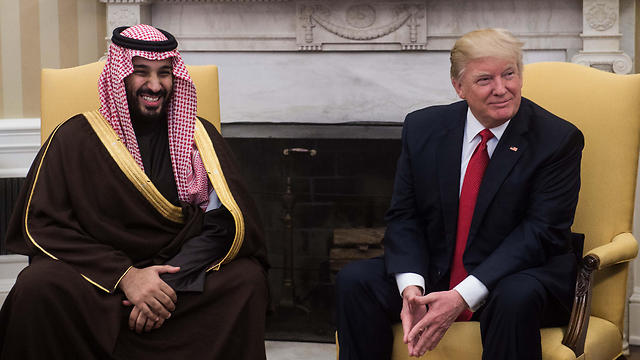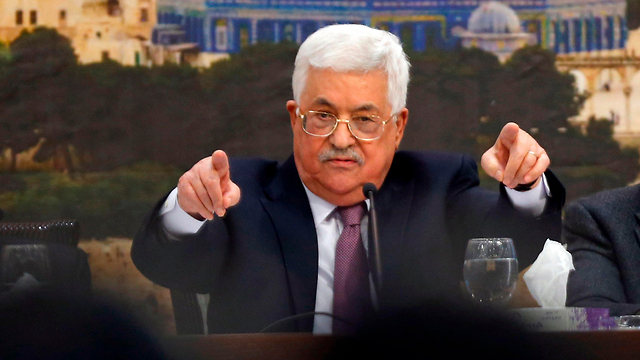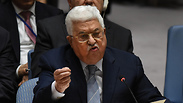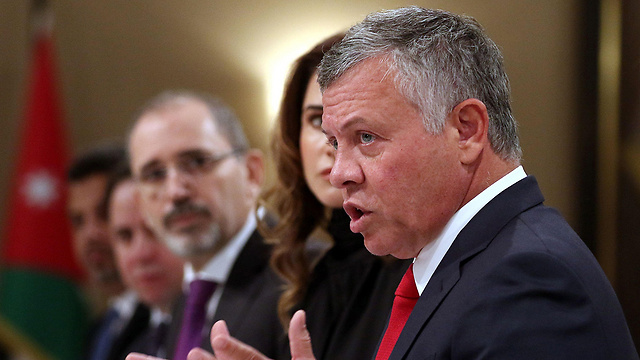
The Americans, the Saudis and the irrelevant Palestinian leader
Analysis: Trump’s ‘deal of the century’ strives to create a moderate neighborhood bloc against Erdogan, Hamas and primarily Iran. Its unfinished draft, which was reportedly presented to the PA intelligence chief by the head of Saudi Arabia's intelligence services, stresses the deal would be implemented with or without the Palestinians' consent.
While Abbas remains silent, we received—at a rather odd timing—Saeb Erekat’s crocodile tears over the humanitarian crisis in Gaza. The rais’ right-hand man has yet to recover from the assassination attempt on Palestinian Prime Minister Rami Hamdallah in Gaza. Erekat, like Abbas, knows the Hamas leadership couldn’t care less about the government institutions in Ramallah. Nevertheless, he insists on protesting the Gazans’ poverty and unemployment and their dangerous ramifications, but is intentionally avoiding the Hamas incitement.

In our neighborhood, nothing is born by chance: Neither the ramming attack nor Erekat’s unconvincing preaching. The picture is much more complicated: On Tuesday, the Saudi crown prince will march on Washington’s red carpets on his way to a meeting with US President Donald Trump at the White House. Prince Mohammed bin Salman is coming to the meeting prepared. He is aware of the expectations and knows exactly what they’re going to talk about. Both sides say the relations between Riyadh and Washington have never been tighter.
Salman did his homework: He traveled to Egypt and got President Abdel Fattah al-Sisi on board with his economic vision—and pulled hundreds of millions of dollars out his pocket. Riyadh and Cairo are bypassing Abbas, in anticipation for the leader who will succeed him.
The fact that he skipped Jordan—intentionally— conceals a statement too: Salman won’t pull out his wallet until King Abdullah severs ties with Turkish President Recep Tayyip Erdogan, stops winking at Iran, and adopts the “deal of the century” to solve the neighborhood conflict. The perception in the past few days is that the Jordanian king is refusing to abandon his commitment to solve the status of Jerusalem’s holy sites.

As usual with Trump, it’s unclear how dedicated he is to the Palestinian issue. According to reports, the head of the Palestinian intelligence apparatuses in Ramallah, Majed Faraj, was secretly summoned to Riyadh, where the head of the Saudi intelligence services handed him the unfinished draft of the regional “deal of the century” being prepared by the American president: Thirty-five pages outlining the future Palestinian state within temporary borders on half of the West Bank territories, rejecting the debate on east Jerusalem’s status to an unknown date, and proposing only concrete and human solutions concerning the right of return for refugees.
Most importantly, the plan stresses that Trump’s deal of the century would be implemented with or without the Palestinians' consent. With them or without them. Just like the American president said in his first days in the White House: If they want it, they’ll take it. If they don’t want it, we’ll do just fine without them.
Trump’s deal strives to create a moderate neighborhood bloc against Erdogan, against Hamas and primarily against Iran. After the Rex Tillerson obstacle was removed, Saudi Arabia is taking over the reins, and Jordan’s King Abdullah of all people is flexing his muscles. Al-Sisi took precious time off his presidential campaign to call an urgent meeting with Jordanian Prime Minister Hani al-Mulki. Following the meeting, the king’s palace has started recalculating its route and will the free trade agreements with Turkey may soon be cancelled.
Israel is likely deeply involved in what is happening there: Prime Minister Benjamin Netanyahu won’t be surprised by the agreements, especially the ones that won’t be exposed, between Trump and the Saudi crown prince. He just has to be restrained when it comes to the nuclear programs. Iran is no excuse. While the world is still undecided on Salman, the world can’t afford to let Saudi’s next king embark on dangerous adventures.


















